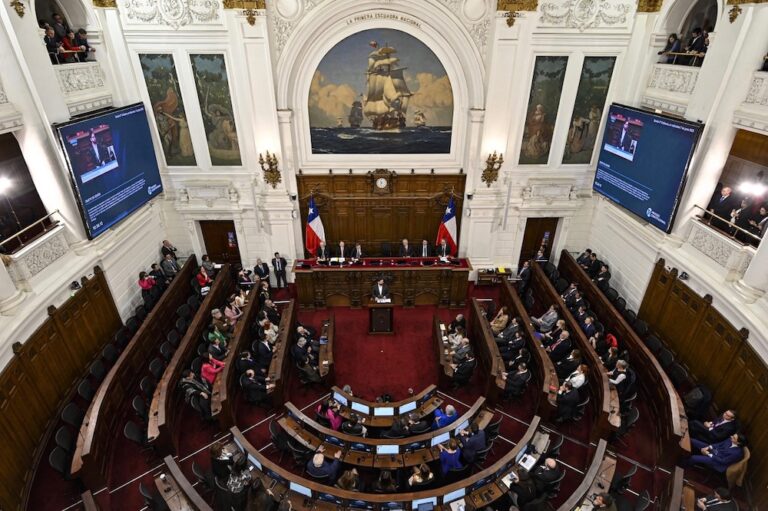AMARC condemns a series of incidents targeting community radio stations.
(AMARC/IFEX) – The Communication Rights and Legislation Programme of AMARC’s Latin America and Caribbean section (AMARC-LAC) condemns a series of incidents targeting community radio stations, being carried out by the government with the support of Chile’s Association of Commercial Broadcasters (Asociación de Radiodifusores comerciales de Chile, ARCHI).
Even though the operations are being carried out “in accordance with the law”, they are aimed at silencing alternative voices that are critical of the government. As such, they are an attack on freedom of expression and on the right of the communities these stations serve to receive information.
The recent closures and threats are even more noteworthy given the current climate of repression of the rights of citizens, increasing restrictions on protests and the closure of alternative and critical spaces. Moreover, AMARC notes that the legislation concerning community-based media outlets is considered one of the most discriminatory in South America and believed to be incompatible with the American Convention on Human Rights.
During a 31 July 2009 press conference, the Chilean Investigative Police announced that it had targeted a number of community radio stations in the Valparaíso area, considered to be operating “illegally”. The operation was led by Police Commissioner Marcos Olivari León, of the Cyber Crime Investigations Unit, following a complaint by the ARCHI regional president, right-wing politician Eugenio González, head of Valparaíso’s Radio Congress.
At noon (local time) on 30 July, the police shut down the UV15 de Cerro Las Cañas and 2000 de Cerro Montedónico radio stations, in the city of Montedónico. Police officers also went to the Radio Placeres studios but were unable to enter the premises and seize the station’s equipment.
On 31 July, the police also raided the studios of Renacer and Conexiones stations in Lota. Renacer has an operating licence but according to the authorities its permit had expired. Both stations’ equipment was seized although there was no mistreatment of their staff, according to Juan Schilling of the Concepción Communication Center (Centro de Comunicación Ciudadana de Concepción).
Fearing further repression, a number of community radio stations have been self-censoring themselves, suspending transmissions and hiding their equipment. Others, like Radio Placeres, operating out of Valparaíso for more than 12 years, said they would refuse to “lower their antennas.”
AMARC-LAC’s Communication Rights and Legislation Programme expresses its concern over these developments. It is perplexed by the fact that at this very moment the government is considering legislative amendments that would improve the status of community radio stations.


